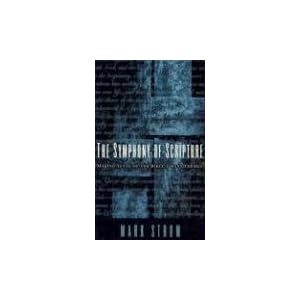Often when I am getting down on myself for my own sinfulness or talking with others about their self-perceived depravity, I am reminded of Hebrews 11. This chapter chronicles several heroes of the faith. Let's consider them each individually.
We don't know much about Abel except that he was a shepherd and was faithful to God. Enoch walked with God. Hebrews 11 says that he "pleased" God. So far, we read of two righteous men commended for their faith. But, if you are a sinner like I am, you will draw encouragement from some of the others. They were sinners, like us (to be clear, so were Abel and Enoch. We just don't have enough info about them).
Noah was a guy who found favor, but we don't necessarily know why, though he was described as blameless in his generation. After he got off the ark, however, he planted a vineyard, made wine, and passed out naked and drunk in his tent.
Next up is Abraham, the father of nations. Abraham was scared of getting killed by the Egyptians, so he pretended his wife Sarah was his sister. It says in Genesis 12:15 that "she was taken in to Pharaoh's house." To be clear, she did not go there for tea--you will need to read between the lines here a bit. Lest you think this was a one time thing, Abraham does it again in Genesis 20. He lies to Abimelech, king of Gerar saying that Sarah was his sister. Abimelech also takes her into his harem, but God keeps him from touching her. Abraham has given his wife away--twice--because he is scared. Oh yeah, he also slept with his wife's handmaiden, Hagar, because Sarah told him to.
Which brings us to Sarah, Abraham's wife. She seemed to lead when Abraham didn't want to. She told him to sleep with her servant, so he did. She became bitterly jealous of her servant and sent her away. Abraham didn't prevent her saying, "your servant is in your power. Do as you please."
Isaac, the son of Abraham and Sarah, loved one of his sons more than the other. But catch this...he and his wife Rebekah settled in Gehar, the same place Abraham and Sarah were. Isaac tells the same lie to Abimelech about Rebekah (that she was his sister) that Abraham told about Sarah.
Isaac's son Jacob is next. He regularly lied to his father and deceived his brother Esau, often at the request of his mother, once to steal the rightful birthright of his brother. He then becomes a bigamist, marrying two sisters.
Joseph is next in line. He had dreams about his brothers bowing to him. His brothers saw him as arrogant. He later lied to his brothers in their time of deepest need.
Moses was a murderer. And he hid the body. He was also a coward who didn't believe God even when he was talking to him face to face. He asked God to send someone else so he didn't have to do what God asked of him. He actually questioned God a lot.
Rahab was a prostitute.
Gideon, one of the judges, had a 70 sons because he had "many" wives. So, he was a polygamist. He also doubted God and put him to the test--twice--because he didn't believe God's miraculous sign the first time.
Barak, another one of the judges, appears to have been a pretty good warrior. But he only would go to war if Deborah promised to go with him.
Samson, remembered for his hair and his strength was another judge of Israel. He was disobedient to his parents, marrying against their express wishes. His wife was then given to his best man and he became mad, so he burned their city. He then hooked up with a prostitute before meeting Delilah. He lied to her several times about the source of his strength. He was excessively proud. If you want to take it that far, he was also cruel to animals.
Jepthah was the son of a prostitute. He made his virgin daughter as a burnt offering because of the tragic vow he made to God.
David, the man after God's own heart, was at least an adulterer and perhaps even a rapist. In any case, he appeared to use his position of power to seduce Bathsheba. He then covered it up by having her husband killed.
Samuel, the final one mentioned does not seem to have the egregious sins mentioned with some of the others either.
The list of sins in these heroes of the faith is profound. We read of murder, cover-up, drunkenness, lust, adultery, cowardice, bitterness, lying, jealousy, favoritism, prostitution, polygamy and a host of other things.
To me, this list of people reminds me that God loves those who are faithful to him, even though we sin egregiously.. He counts our faith as righteousness, as we read in Romans 4. Hebrews 11:1 reads, "Now faith is the assurance of things hoped for, the conviction of things not seen." Our only hope is faith in the One who does not sin, who does not falter, and who does not leave us or forsake us.
If you are a sinner, find comfort in this passage. The Bible is full of stories of God forgiving murderers and rapists and adulterers and sinners of every stripe. He will forgive you too if you have the faith to confess with your mouth and believe in your heart that Jesus is Lord (Romans 10:9)
 The work of parenting is hard. Breaking up the rocky soil of their hearts is an arduous, ongoing process, but I praise God that he allows me to be a part of it--both the good and the bad. Because on the other side of the process, there is fruit. Grace lovingly serving her brother. The name of Jesus on Tessa's lips. Ian saying that in the next year, he wants to learn more of God's word. Each of these little buds a sign of new growth.
The work of parenting is hard. Breaking up the rocky soil of their hearts is an arduous, ongoing process, but I praise God that he allows me to be a part of it--both the good and the bad. Because on the other side of the process, there is fruit. Grace lovingly serving her brother. The name of Jesus on Tessa's lips. Ian saying that in the next year, he wants to learn more of God's word. Each of these little buds a sign of new growth.











